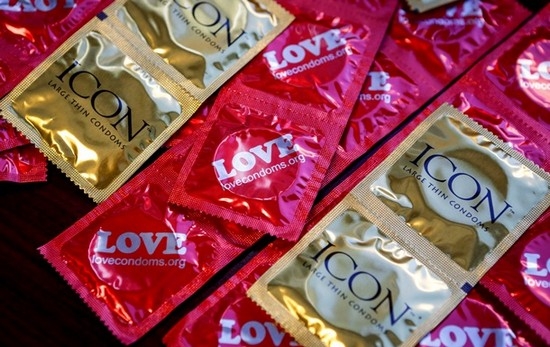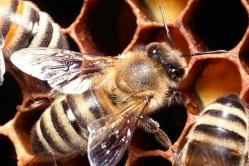Antipyretics for children are prescribed by a pediatrician. But there are emergency situations with fever when the child needs to be given medicine immediately. Then the parents take responsibility and use antipyretic drugs. What is allowed to be given to infants? How can you lower the temperature in older children? What medications are the safest?
Is it possible to get pregnant while breastfeeding? If you know the answer, the couple will be insured against unforeseen situations. New parents who want to have control over their own lives should familiarize themselves with the likelihood of conception during lactation, effective and unreliable methods of contraception.
So, is it possible to get pregnant while breastfeeding? Yes, this is quite real, and this happens in practice - despite the existing myth that a new conception is excluded during such a specific period. Because of this opinion, many parents let the situation take its course, forgetting about protection and possible consequences.
Probability of conception during lactation
Is it possible to get pregnant while breastfeeding, we found out. Now let's talk about the likelihood of such an outcome. According to statistics, conception during this period rarely occurs. There is even such a thing as lactational amenorrhea (amenorrhea is the absence of menstruation). After childbirth, the reproductive system has not yet been fully restored. Breastfeeding delays the readiness of the female body for fertilization (compared to mothers who practice artificial or mixed feeding). In some cases, this process is delayed until the baby is fed breast milk. But it happens that even in the absence of menstruation, a woman still finds herself pregnant.
Read also:
The question of whether it is possible to get pregnant during lactation is answered positively not only by doctors, but also by many women who have experienced this firsthand (numerous forums on the Internet confirm this fact). In quantitative terms, the probability of conception during this period is approximately 10%.
The chances of a possible pregnancy are reduced if the following conditions are met:
- feeding is carried out only at the request of the baby himself, and not according to the established regime;
- It is not practiced to feed the baby with formula;
- Breastfeeding is carried out from the birth of a son or daughter;
- pregnancy and childbirth proceeded within normal limits, the child and mother feel great and are absolutely healthy;
- feeding is carried out at least 6 times a day.
If at least one item from this list is not met, the risk of conception increases.

Everyone knows about the standard signs of conception. Do the signs of pregnancy that occurred during breastfeeding differ from them?
Specific symptoms:
- change in the taste of milk. Often, when pregnancy occurs, the child unexpectedly begins to refuse the mother’s product. This is explained by the fact that during conception, a woman’s hormonal background changes, which has a direct effect on taste;
- decrease in milk quantity. When a new pregnancy occurs, the body enters an energy saving mode - due to this, the work of the mammary glands slows down;
- The feeding process may become painful. This is explained by increased sensitivity of the mammary glands due to swelling of the nipples.
Standard indicators of pregnancy:
- fatigue. Although most women already feel a significant loss of energy after childbirth, this condition can worsen;
- nausea (early toxicosis) also occurs during pregnancy that occurs during lactation;
- headaches and other signs of hormonal changes;
- increased appetite or cravings for certain foods;
- swelling of the nipples.
However, “classic” symptoms may not appear. Only a pregnancy test can give an accurate answer.
Protection for a new mother

In order for the answer to the question of whether it is possible to get pregnant after childbirth if there are no periods to depend only on your desire, it is important to decide whether you are ready for a new pregnancy and childbirth. If not, then you need to familiarize yourself with your contraceptive options.
Suitable methods of protection:
- Condoms are the safest option and do not affect milk and its contents. Cons: decreased sensitivity, possible discomfort and allergic reactions;
- suppositories containing nonoxynol (kills sperm) are also safe and do not affect breast milk. Disadvantages: do not always protect against bacteria and some infections, can cause irritation of the mucous membrane;
- intrauterine devices. Some people install them immediately after childbirth, but it is advisable to wait at least 1.5 months. Disadvantages: sometimes cause uterine irritation, do not provide a 100% guarantee;
- hormonal contraceptives. During the feeding period, you can practice taking only mini-pills (gestagen preparations containing only one hormone). The amount of a hormone similar to progesterone in such preparations is minimal. It does not pass into milk, but in order to avoid hormonal disorders in the mother, it is better to take the pills 4 weeks after birth. Cons: do not provide a full guarantee, affect the cycle and have side effects (nausea, dizziness);
- injections with hormonal components, progestin implants, which are injected under the skin. This is a relatively new invention. Progestin hormones are safe for milk and act for several years. Disadvantages: high price, influence on the cycle, sometimes inflammation may occur at the sewing site.
It is strictly forbidden to take oral contraceptives containing more than one hormone (a combination of a representative of the estrogen group with progesterone) during feeding. They are effective for protection, but reduce the quantity and quality of the “mother’s product”. Entering the female body, these substances are absorbed into milk, which, if consumed regularly, can even cause developmental deviations in the child.
Ineffective methods during this period are:
- calendar, which consists of counting “safe days”. After childbirth, the woman’s body has not yet recovered, a constant clear cycle has not formed, ovulation can occur at any time;
- interrupted sexual intercourse. This method is ineffective not only during lactation, but also at any other time.



